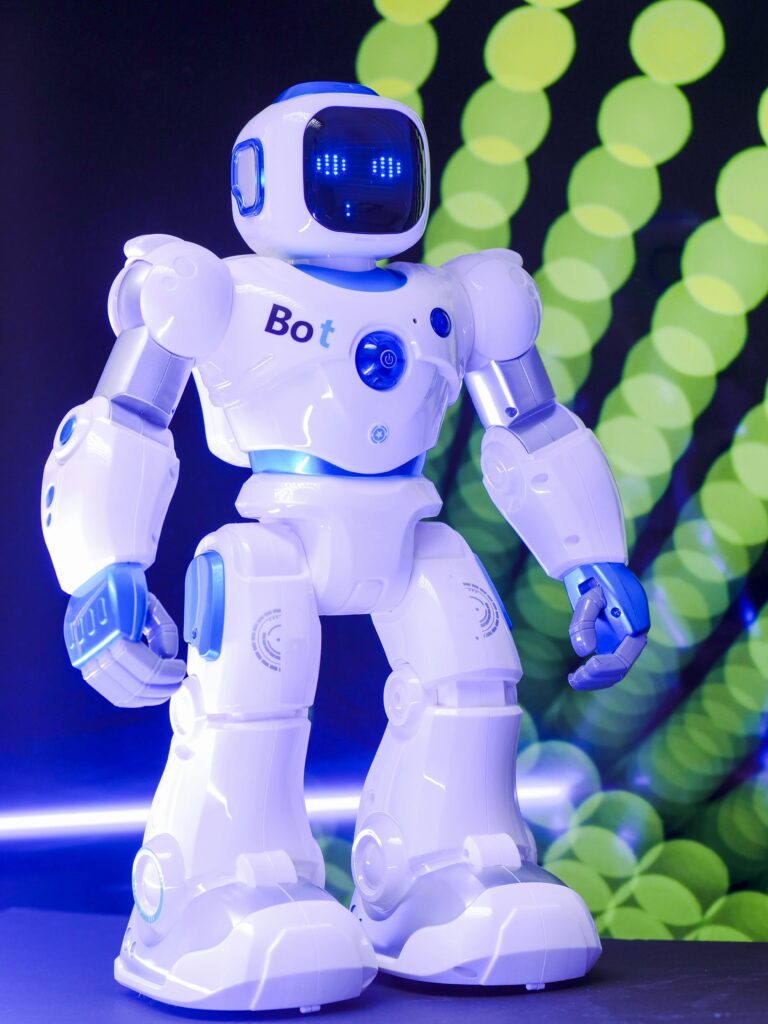
Artificial Intelligence (AI) is no longer just science fiction or futuristic technology—it’s now a powerful tool shaping nearly every part of our lives. From smartphones and smart homes to healthcare, finance, and even education, AI is revolutionizing how we work, live, and interact with the world.
In this article, we’ll explore how AI is transforming industries, improving everyday life, and what to expect in the near future.
🌍 What is Artificial Intelligence?
Artificial Intelligence refers to machines or computer programs that can perform tasks that typically require human intelligence. These tasks include things like:
- Learning from data (machine learning)
- Recognizing speech and images
- Understanding natural language
- Making decisions and predictions
In 2025, AI is more advanced than ever, and it’s already embedded in the apps and devices we use daily.
1. 🏥 AI in Healthcare – Saving Lives with Data
One of the most impactful uses of AI is in the healthcare industry. In 2025, AI is helping doctors diagnose diseases faster and more accurately than ever before.
Examples:
- AI-powered tools can detect cancer from X-rays or MRIs with impressive accuracy.
- Chatbots and virtual health assistants offer basic diagnosis and support 24/7.
- Predictive models help hospitals prepare for disease outbreaks or patient surges.
Impact:
Patients receive quicker treatment, doctors make better decisions, and hospitals operate more efficiently.
2. 💼 AI in the Workplace – Boosting Productivity
AI is transforming how companies do business. In offices, warehouses, and customer service centers, AI tools are helping people get more done in less time.
Common uses:
- Automating repetitive tasks like data entry or scheduling
- Virtual assistants like ChatGPT helping write emails or analyze data
- Smart systems improving customer support with AI chatbots
Impact:
Businesses save money and increase productivity, while employees can focus on creative and strategic work instead of boring, repetitive tasks.
3. 📱 AI in Our Daily Lives – Hidden in Plain Sight
Most people don’t realize how much AI they already use every day. In 2025, artificial intelligence powers many of the tools we use without even thinking about it.
Examples:
- Voice assistants like Siri, Alexa, and Google Assistant
- Recommendation engines on Netflix, YouTube, and Spotify
- Face recognition in phones and security systems
- GPS apps suggesting the fastest route based on real-time traffic
Impact:
AI makes life more convenient, saves time, and provides personalized experiences.
4. 🏦 AI in Finance – Smarter Money Management
AI is changing how people and companies manage money. Banks and fintech companies are using AI to improve services, reduce fraud, and help users make smarter financial decisions.
Examples:
- Fraud detection systems that spot unusual transactions in seconds
- AI-powered investment apps that suggest where to invest
- Chatbots that answer banking questions instantly
- Credit scoring systems that analyze more than just your credit history
Impact:
Financial services become faster, safer, and more accessible—even for people with limited banking experience.
5. 🎓 AI in Education – Personalized Learning
In 2025, AI is becoming a personal tutor for millions of students around the world. With the help of AI tools, education is becoming more flexible, inclusive, and efficient.
Examples:
- Apps that adjust learning speed based on student performance
- AI tutors helping students practice languages, math, and science
- Teachers using AI to grade assignments and track progress
- AI chatbots answering students’ questions anytime
Impact:
Students learn at their own pace, teachers save time, and access to quality education improves globally.
⚠️ Challenges of AI in 2025
While AI brings many benefits, there are also concerns and risks to be aware of:
- Job Losses: Some jobs are being automated, especially in manufacturing, data entry, and customer service.
- Privacy Issues: AI systems collect a lot of personal data, raising concerns about privacy and misuse.
- Bias and Fairness: If AI is trained on biased data, it can make unfair or harmful decisions.
- Over-Reliance on Machines: Too much dependence on AI might reduce human critical thinking or social interaction.
Solution:
Governments, companies, and developers must work together to create fair, transparent, and ethical AI systems.
🔮 The Future of AI – What’s Next?
By the end of the decade, AI will continue to evolve in exciting new ways:
- Self-driving cars could become mainstream.
- AI-powered robots may assist in homes and hospitals.
- Generative AI (like ChatGPT, DALL·E, etc.) will create more realistic images, videos, and music.
- AI in agriculture will help feed the world through smart farming.
AI will not replace humans—it will empower us to solve big problems faster and more creatively.
💡 Final Thoughts
Artificial Intelligence is not just a tech trend—it’s a fundamental shift in how the world works. In 2025, AI is helping us live healthier lives, work more efficiently, learn better, and even manage our money smarter.
Whether you’re a student, business owner, or everyday user, understanding how AI works and how it’s changing the world can help you adapt, stay informed, and take advantage of the opportunities it brings.
Want to explore more?
Read our next article:
👉 “Top 10 AI Tools to Try in 2025 (That Will Blow Your Mind)”


